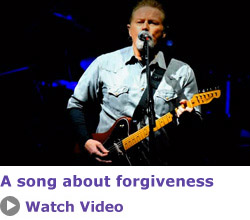This is How Positive Change Happens…
Compassionate Forgiveness
One of my newsletter subscribers wrote and asked me if I would write about forgiveness. I am happy to take on the challenge. I say “challenge” because I have long felt that forgiveness, as a concept and as an act, is difficult to really grasp in an authentic way.
I better understand “forgiveness” by understanding the practice of compassion. The term “compassionate forgiveness” resonates with me. When we activate compassion in ourselves we open ourselves to acknowledging and feeling our own suffering and the suffering of another. With compassion, we can understand with our hearts (not just our heads) that someone has hurt us because they are suffering. When we know this, we can experience softening, understanding, and release.
I have noticed that some people often think they “should” forgive someone and in doing so, they prematurely force themselves into forgiving. The true experience of forgiveness is not reflected in how their body reacts when they think about or talk about the other person. This is not authentic forgiveness. It’s an act of “spiritual bypassing” or forcing oneself to feel forgiveness (or any other emotion/spiritual state) when one is not ready to do so. We can prevent this by focusing on attending to our wounds first.
When someone has hurt us, it’s best to start with giving compassionate forgiveness to ourselves. When we meet ourselves with a more open and soft heart, we experience healing and, from that place, then we can actually feel compassion and forgiveness for another.
Here’s a couple of exercises that can help us to feel more compassionate forgiveness:
1. Take a deep breathe and say to yourself, “From a place of deep compassion within me, I see and accept my pain and suffering. I care about myself“. If it fits for you, you might add, “I forgive myself“.
2. Imagine the person who has hurt you as a small child. See their innocence and vulnerability. See that there were certain conditions when they were young that set them up to hurt you. When we see someone through this lens, we tend to feel more compassion for them and we feel less threatened by them.
Practicing compassionate forgiveness is not about condoning harmful behaviour, letting people hurt us, making excuses, or trying not to feel our real feelings. We still hold ourselves and others accountable. The difference is that we choose to meet the fact that damage has been done without attack. Sometimes we have to forgive over and over again because nothing magical happens the first time we do it. Compassionate forgiveness is a practice that we commit ourselves to because the feeling of openness and softness in our hearts when we practice it tell us that it’s worth it.
- How to Be an Adult in Relationships by David Richo (book)
- The Power of Forgiveness (DVD)
- Thich Nhat Hanh, various teachings
- Spiritual Bypassing by Robert Augustus Masters (book)


